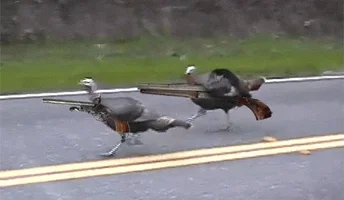By FRANK CARINI/ecoRI
News staff
 The U.S. Fish & Wildlife
Service is looking to expand hunting and fishing opportunities in Rhode
Island’s five National Wildlife Refuges, to “provide the public with a
high-quality recreational experience on complex lands.”
The U.S. Fish & Wildlife
Service is looking to expand hunting and fishing opportunities in Rhode
Island’s five National Wildlife Refuges, to “provide the public with a
high-quality recreational experience on complex lands.”
Here is a look at the
proposed changes to hunting and fishing at the five refuges, according to the 91-page draft plan the
federal agency released this month:
Ninigret (Charlestown): Nearly all of the refuge’s 883 acres would be opened for white-tailed deer, wild turkey, coyote, and fox hunting, with some season and weapon restrictions. These hunting areas are identified as Kettle Pond, Lewis Tract, Salt Pond, and Barrier Beach.
Trustom Pond (South Kingstown): The federal agency has proposed opening 358 acres on the western portion of the 777-acre refuge to archery hunting for white-tailed deer, wild turkey, coyote, and fox. A 22-acre tract identified as Field 1 is currently open to Canada geese and mourning dove hunting. The proposed changes would open this area to duck, mergansers, and coot hunting.
Ninigret (Charlestown): Nearly all of the refuge’s 883 acres would be opened for white-tailed deer, wild turkey, coyote, and fox hunting, with some season and weapon restrictions. These hunting areas are identified as Kettle Pond, Lewis Tract, Salt Pond, and Barrier Beach.
Trustom Pond (South Kingstown): The federal agency has proposed opening 358 acres on the western portion of the 777-acre refuge to archery hunting for white-tailed deer, wild turkey, coyote, and fox. A 22-acre tract identified as Field 1 is currently open to Canada geese and mourning dove hunting. The proposed changes would open this area to duck, mergansers, and coot hunting.
Block Island: All of the refuge’s 133 acres would be opened for white-tailed deer hunting. These hunting ares are identified as Beane Point, Grove Point, Sandy Point, Wash Pond, and Skippers Island. About 9 acres of Wash Pond would be opened for migratory waterfowl hunting — ducks, mergansers, and coot. Saltwater fishing will continue to be allowed from refuge shorelines.
John H. Chafee (at Pettaquamscutt Cove, divided between the towns of South Kingstown and Narragansett): About 461 acres of the refuge’s 563 acres would be opened for white-tailed deer, wild turkey, fox, and coyote hunting, with some season and weapon restrictions.
Hunting areas are identified as Foddering Farms, Stedman, Star Drive, Mumford, Middlebridge, and Congdon Cove. The 130-acre Foddering Farms area would be open to the spring firearm turkey season, and about 116 acres would be opened for migratory waterfowl hunting.
Saltwater fishing would
be allowed from the shoreline of the refuge, within 20 feet of the mean
high-tide line, extending 985 linear feet from the kayak ramp.
Some areas of the refuge
would remain closed to hunting and fishing, to reduce conflicts with other
recreational, biological, or administrative uses. Hunting and fishing areas
would be assessed annually for deteriorated habitat and, based on this
assessment, these areas would be designated “either open or temporarily
closed.”
Sachuest Point (Middletown): Since Sachuest
has the most visitors of Rhode Island’s five refuges, with about 325,000
visitors annually, the 242-acre reserve wouldn’t be open to the general public
for hunting. The refuge may be conducive to a limited, targeted group — such as
veterans, women, youth, and/or hunters with disabilities — for deer, coyote,
and fox.
During hunts, the refuge would close to all other activities. The Fish & Wildlife Service said it doesn’t anticipate hunting activities to occur on an annual basis. Waterfowl hunting is allowed by boat offshore. Saltwater fishing from the refuge shoreline would remain prohibited.
During hunts, the refuge would close to all other activities. The Fish & Wildlife Service said it doesn’t anticipate hunting activities to occur on an annual basis. Waterfowl hunting is allowed by boat offshore. Saltwater fishing from the refuge shoreline would remain prohibited.
The Fish & Wildlife
Service noted that it would “design a hunting and fishing program that is
administratively efficient and manageable with existing staffing levels” and
that aligns with Rhode Island Department of Environmental Management
“regulations when possible.”
It also noted that it
would design a hunting and fishing program that is “in alignment with complex
habitat management objectives.”
Two informational open
houses have been scheduled: Tuesday, April 14, from 6-8 p.m. at the Kettle Pond
Visitor Center, 50 Bend Road, Charlestown; and Thursday, April 16, from 6-8
p.m. at the Sachuest Point Visitor Center, 769 Sachuest Point Road, Middletown.
The meetings will provide an opportunity to discuss the proposed changes and to
answer questions on the draft plan.
Comments can also be
submitted via email at rhodeislandcomplex@fws.gov or by mailing to:
Rhode Island NWR Complex, 50 Bend Road, Charlestown, RI 02813. Comments are due
by April 24.